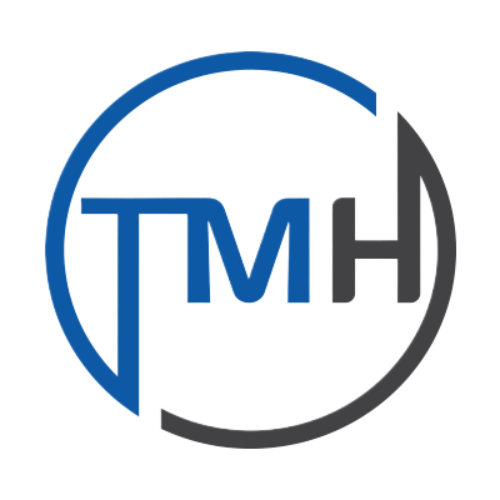If you’ve ever researched the mortgage process, you were—and maybe still are—completely confused by all the different people involved.
Mortgage brokers, mortgage lenders, banks, credit unions, mortgage bankers… it’s a lot to take in.
But understanding these different entities, what they do, and how they play into your financing process will help you feel much more confident when you’re shopping for a mortgage.
What Mortgage Brokers Do
Mortgage brokers operate as an intermediate between the homebuyer and the mortgage lender. It’s a mortgage broker’s job to assess your financial circumstances and budget, provide guidance, find a competitively priced mortgage product, gather documentation, and complete and explain the loan paperwork.
Mortgage brokers do not actually lend money. They match borrowers with potential mortgage lenders and earn compensation from the borrower or the lender (but not both) based on the size of the loan. Mortgage brokers serve borrowers by shopping around for the best rate, handling the application process, and providing financial expertise.
What Mortgage Bankers Do
Mortgage bankers borrow money from warehouse lenders to fund a home mortgage, which they then sell to investors, which are typically lenders or banks. Using the funds from that sale, the mortgage banker pays off their warehouse lender. They make money from the loan origination fees that they charge to home mortgage borrowers or premiums received from the investor.
In the United States, the vast majority of mortgage lenders are mortgage bankers. Wells Fargo, Quicken Loans, and Chase are a few examples of the nation’s largest mortgage bankers.
What Mortgage Lenders Do
Mortgage lenders are the ones who provide the money the borrower uses to buy their house. Mortgage lenders can take a credit union like Navy Federal Credit Union, or a retail bank like Citibank.
As mentioned before, mortgage banks are also mortgage lenders because (like credit unions or banks) mortgage bankers provide the money the borrowers use to buy the house. The difference is a credit union or bank often uses its own funds to fund your loan. Also, they don’t always turn around and sell your mortgage to an investor like a mortgage banker does.
Mortgage lenders can be further categorized into seven main types: mortgage bankers, direct, wholesale, warehouse, retail, correspondent, and portfolio lenders. The distinctions between these lenders mainly have to do with how they fund loans.
Who’s the Best for You: Mortgage Lenders vs. Brokers vs. Bankers
Mortgage bankers are simply one kind of mortgage lender. Other types of mortgage lenders include credit unions and retail banks, as described above.
Mortgage brokers, since they don’t actually lend money, are different entities entirely. So when you’re considering who to work with for your mortgage, first you must choose whether you’re going to use a broker or work with the lender directly.
If you work with a broker, you don’t have to worry much about the kind of lender you get your loan from. That’s your mortgage broker’s job; to find you the best mortgage product given your circumstances and desires.
Depending on your situation and the market, one type of mortgage lender—for example, a retail bank—may be more suitable than another.
But again, because your mortgage broker will shop around with multiple lenders, the type of lender (mortgage banker, credit union, or retail bank) is secondary in importance to who can offer the best deal.
If you don’t work with a broker, on the other hand, it’s important to understand the differences between different types of lenders. This enables you to more effectively search for the best deal.
For example, brick and mortar retail banks will typically have the most stringent qualification requirements but they might also offer great deals.
Because you’d be working with the lender directly, you’d have to shop around aggressively to ensure you’re getting the best deal.
Also, individual mortgage banks and credit unions typically don’t have a wide range of loan products which means, if you don’t shop around, you may miss out on products that are a good fit for you.
If you work with The Mortgage Hub, you get the cost and service benefits of working with a mortgage broker and lender because we’re a broker and correspondent lender. That means, we can shop around to get you the best deal and we can fund your loans ourselves to prevent any costly delays in closing.
Think “Functions”, Not “People”
Remember: Brokers, bankers, and lenders are not necessarily separate companies. In other words, mortgage brokers can act as mortgage bankers, even if they call themselves a mortgage broker.
And banks can do the same. In fact, banks often do act primarily as mortgage bankers.
So instead of thinking of brokers, mortgage bankers, and lenders as separate “people” or companies, think of them as functions. Bankers may broker deals. And some brokers, including The Mortgage Hub, may act as mortgage bankers on certain deals.
And if you’re still getting mixed up, use the chart below to remind yourself.
| Defining Characteristic | Mortgage Broker | Mortgage Banker | Mortgage Lender |
| Funds your loan with its own money |
X |
||
| Shops around for multiple rates |
X |
||
| Funds your loan with someone else’s money |
X |
Or call now at (888) 273-8734 or Schedule a Consultation to get your questions answered from one of our Mortgage Consultants.







